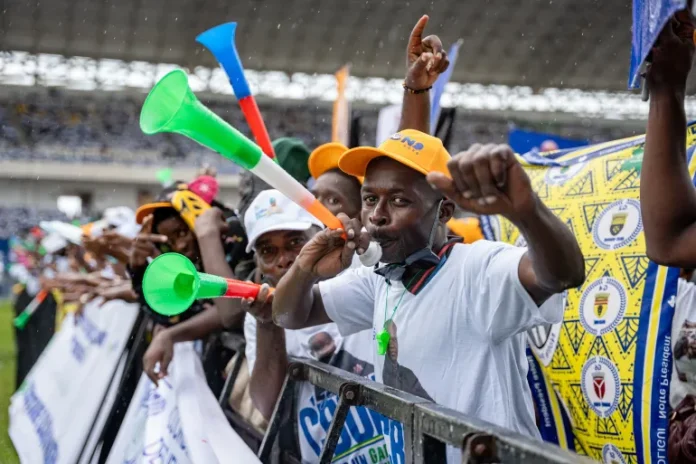The oil-rich central African country of Gabon on Saturday holds its first presidential election since a 2023 military coup ended a political dynasty that had ruled for more than 50 years.
Beginning of a political crisis
On August 30, 2023, a military coup took place in Gabon by a group of officers of the national armed forces who disagreed with the outcome of the presidential election held a few days earlier, which was officially won by Ali Bongo Ondimba, Gabon’s president since 2009, the son of Omar Bongo Ondimba, who ruled the country for 42 years until his death. The coup was bloodless, Ondimba was initially placed under house arrest, but this restriction was soon lifted on medical grounds.
The rebel-created Committee for the Transition and Restoration of State Institutions (Comité pour la transition et la restauration des institutions – CTRI) annulled the election results, closed the borders, dissolved all state institutions, and declared a two-year transition period.
Army General Brice Oligui Nguema, chairman of the CTRI and commander of the Republican Guard of the Republic (responsible for the security of officials and state institutions), became the interim president of Gabon. He promised to “return power to the civilians” through “credible elections.”
Gabon’s Second Republic
In the autumn of 2024, the transitional authorities successfully held a referendum on a new constitution in the republic – 91% of plebiscite participants were in favour, with a turnout of 54%. This Constitution replaced the 1991 Basic Law and proclaimed Gabon’s Second Republic.
The preamble to the document states that the people of Gabon, “following the spirit of the events of August 30, 2023, intend to resume their journey to build a state governed by the rule of law, guaranteeing fundamental rights and freedoms.”
The new constitution expands the powers of the president by abolishing the office of prime minister; it limits the presidential term to one seven-year term; and the candidate for the highest office of the state must be “in a perfectly healthy physical and mental state,” as the medical commission that swore him in before the Constitutional Court must certify.
Presumed leader of the Gabon election
Brice Oligui Nguema, 50, is considered the favourite to win the election. According to a poll released in April by pan-African TV channel Africa24, 80 per cent of respondents support him. Nguema is running on behalf of the newly formed Rassemblement des bâtisseurs (Rassemblement of Builders) party, whose motto is “With our efforts we will rebuild Gabon.” He launched his candidacy at the beginning of March 2025.
Reuters attributes Nguema’s popularity and possible victory to the advantages that his interim presidency and status as one of the key overthrowers of the Ondimba dynasty have given him. “He speaks of a Gabon that will “rise from the ashes” and describes himself as someone who will “build this nation,”the agency continues. “That resonates with many in sparsely populated Gabon, where for decades the small political elite surrounding the Bongo family have lived in oil-funded luxury while most others languished in poverty.”
There are seven other contenders for the state’s highest office. Alain Claude Bilie By Nze (57), a former prime minister (he led the government from January to August 2023) who was part of President Ondimba’s team, is second in popularity. To distance himself from her, Bilie By Nze created his own movement “Together for Gabon” (Ensemble pour le Gabon). According to the poll, he has 10 per cent support. The other six candidates have the same total.
The interim president has not gone down the path of radical reforms: the basis of the political system and foreign relations have hardly changed, relations with France as a privileged partner are preserved, although a partial revision of them has been discussed; about 200 soldiers of the French armed forces remain in Gabon.
New regime and economy in Gabon
The new regime in Libreville has also been recognised by its neighbours: the presidents of Equatorial Guinea, the Republic of Congo and Cameroon, which has given the new authorities legitimacy. There has been no politicisation or radicalisation of the population: the constitutional referendum in November 2024 had a turnout of just over 50%, the same as the Bongo-era elections.
This central African country of about 2.3 million people is a member of OPEC and, according to the US Energy Information Administration, had oil export revenues of $6 billion in 2022. However, according to the World Bank, nearly 40 per cent of Gabonese between the ages of 15 and 24 were unemployed in 2022.
Gabon’s economy grew by 2.9 per cent in 2024, up from 2.4 per cent in 2023, thanks to an increase in infrastructure projects under the transitional government and higher production of key commodities including oil, manganese and timber.
